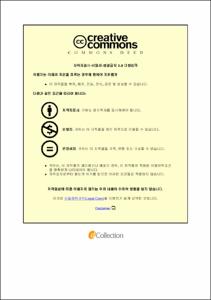유아 놀이와 가정에서의 놀이 지원에 대한 어머니들의 이야기
- Abstract
- In this study, the contents were analyzed by interviewing mothers aged 3 to 5 to understand how children perceive play through the voices of mothers raising infants and toddlers, aspects, difficulties, and necessity of play support at home. As a result of the study, the meaning of infant play that mothers talk about is happiness in itself, self-learning, play as an indicator of development, play as a learning tool, and play as time with parents, but it is difficult to find a change in perception that play is a right that infants should enjoy. Second, the aspects of play support that mothers talk about were the play played by infants alone without the mother's play support, the play led by parents who followed the mother, and the play with the parents who the mother helped and played with. Third, the limitations of play support were lack of play time, limitations of physical strength, difficulties in play methods, conflicts in parenting, and difficulties in play support due to the characteristics of constantly repeating play. Fourth, based on the difficulty of supporting play at home, the demands related to play support for infants' play and mothers' play support wanted to support play, guide play methods, provide play materials, and provide play spaces and programs. Through these research results, early childhood education institutions can help mothers understand the play of infants, and further obtain educational practical meaning to support play at home.
- Issued Date
- 2022
- Awarded Date
- 2022. 2
- Type
- Dissertation
- Publisher
- 부경대학교
- Affiliation
- 부경대학교 교육대학원
- Department
- 교육대학원 유아교육전공
- Advisor
- 이경화
- Table Of Contents
- Ⅰ. 서론 1
1. 연구의 필요성 및 목적 1
2. 연구문제 6
3. 용어의 정리 7
가. 어머니 7
나. 놀이 지원 7
Ⅱ. 이론적 배경 8
1. 유아 놀이 8
가. 놀이의 의미 8
나. 놀이와 유아교육과정의 관계 11
2. 유아 놀이의 지원 16
가. 놀이 및 놀권리에 대한 부모의 인식 17
(1) 유아의 놀이 17
(2) 유아의 놀권리 20
나. 부모의 유아 놀이 지원 22
Ⅲ. 연구방법 26
1. 연구참여자 26
2. 자료수집 29
3. 자료분석 32
Ⅳ. 연구결과 36
1. 어머니들이 이야기하는 유아 놀이의 의미 36
가. 그 자체로 행복인 놀이: 놀이 할 때 제일 즐거워해요. 37
나. 스스로 배움이 되는 놀이: 놀이는 아이들이 배우는 과정이에요. 40
다. 발달의 지표인 놀이: 아이의 관심을 파악할 수 있어요. 43
라. 학습을 위한 놀이: 노는 것도 공부에요. 45
마. 엄마와 교감하는 시간으로서의 놀이: 놀이는 공감이다. 47
2. 어머니들이 이야기하는 놀이 지원 50
가. 놀이 지원의 양상 51
(1) 유아 혼자 하는 놀이: 집에서는 같이 노는 시간은 없어요. 51
(2) 부모가 이끌어주는 놀이: 엄마 주도 하에 하니까 더 좋아해요. 57
(3) 부모와 함께하는 놀이: 아이가 원하는 놀이를 같이 해 줘요. 61
나. 놀이 지원의 어려움 65
(1) 놀이 시간의 부족: 놀이 할 시간이 없어요. 65
(2) 체력의 한계: 체력이 달려요. 67
(3) 놀이 방법의 어려움: 어떻게 해야 할지 모르겠어요. 69
(4) 갈등 중재의 어려움: 어떻게 지도해야할지 고민이에요. 71
(5) 끊임없이 반복되는 놀이: 그만하고 싶은데 계속 하자고 해요. 73
다. 놀이 지원 관련 요구 75
(1) 놀이자 지원: 가이드 해 줄 수 있는 사람이 있으면 좋겠어요. 75
(2) 놀이 방법의 안내: 놀이 지침서가 있으면 좋겠어요. 78
(3) 놀이 자료의 제공: 놀이키트가 있으면 좋겠어요. 79
(4) 놀이 공간 및 프로그램의 제공: 아이들이 놀기 좋은 장소나 프로그램이요. 81
Ⅴ. 논의 및 결론 86
1. 요약 86
2. 논의 86
가. 어머니들이 이야기하는 유아 놀이의 의미 86
나. 어머니들이 이야기하는 놀이 지원의 양상 89
3. 결론 및 제언 98
참고문헌 101
부 록 111
- Degree
- Master
- Files in This Item:
-
-
Download
 유아 놀이와 가정에서의 놀이 지원에 대한 어머니들의 이야기.pdf
기타 데이터 / 684.01 kB / Adobe PDF
유아 놀이와 가정에서의 놀이 지원에 대한 어머니들의 이야기.pdf
기타 데이터 / 684.01 kB / Adobe PDF
-
Items in Repository are protected by copyright, with all rights reserved, unless otherwise indicated.